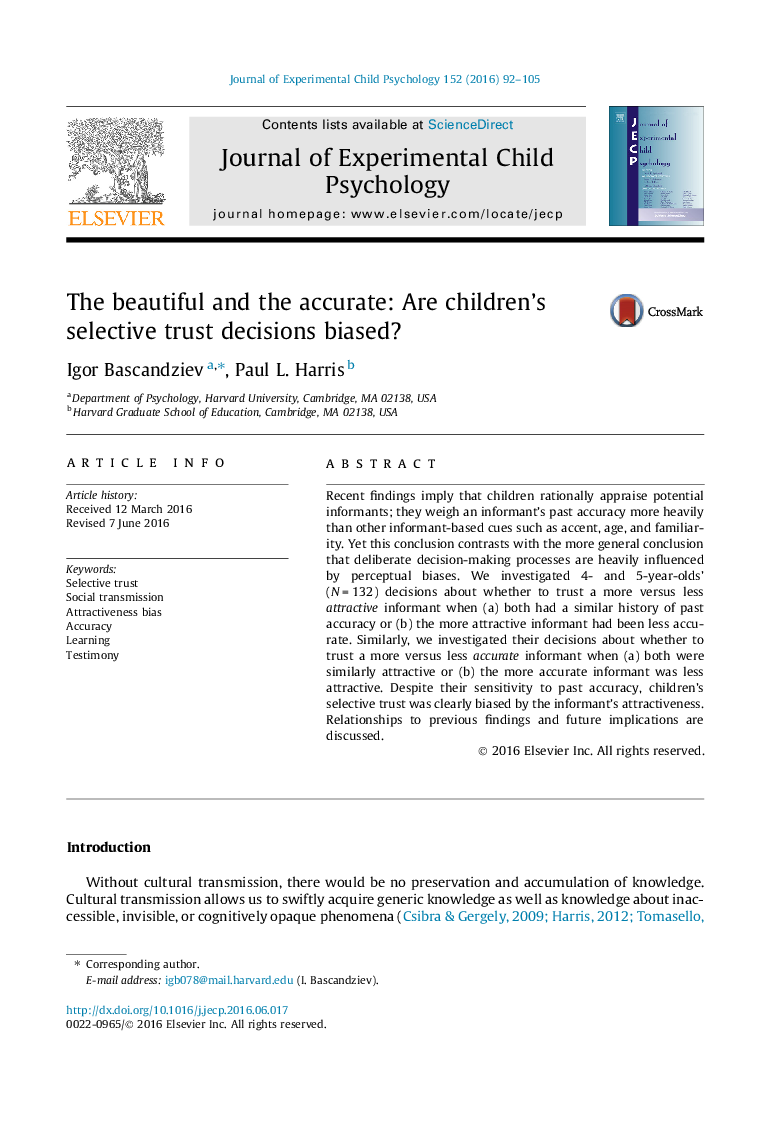| کد مقاله | کد نشریه | سال انتشار | مقاله انگلیسی | نسخه تمام متن |
|---|---|---|---|---|
| 917849 | 1473460 | 2016 | 14 صفحه PDF | دانلود رایگان |
• Children selectively trust more accurate informants.
• Children selectively trust more attractive informants.
• Attractiveness plays a role even when information about accuracy is available.
• Accuracy does not trump attractiveness.
Recent findings imply that children rationally appraise potential informants; they weigh an informant’s past accuracy more heavily than other informant-based cues such as accent, age, and familiarity. Yet this conclusion contrasts with the more general conclusion that deliberate decision-making processes are heavily influenced by perceptual biases. We investigated 4- and 5-year-olds’ (N = 132) decisions about whether to trust a more versus less attractive informant when (a) both had a similar history of past accuracy or (b) the more attractive informant had been less accurate. Similarly, we investigated their decisions about whether to trust a more versus less accurate informant when (a) both were similarly attractive or (b) the more accurate informant was less attractive. Despite their sensitivity to past accuracy, children’s selective trust was clearly biased by the informant’s attractiveness. Relationships to previous findings and future implications are discussed.
Journal: Journal of Experimental Child Psychology - Volume 152, December 2016, Pages 92–105
